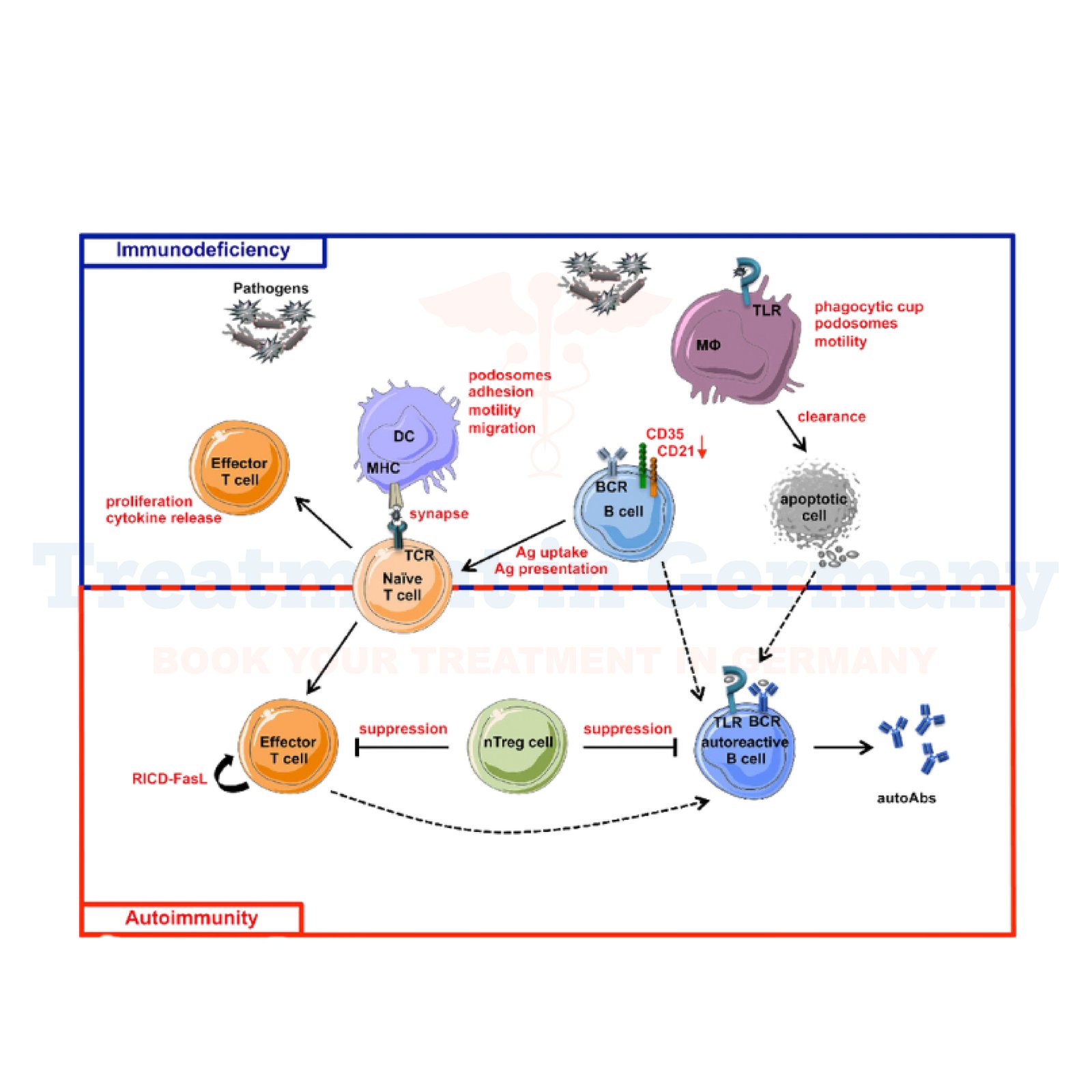What is Wiskott-Aldrich Syndrome?
Wiskott-Aldrich Syndrome (WAS) is a rare genetic disorder that primarily affects males and is characterized by a triad of symptoms: recurrent infections, eczema (a skin condition), and a low platelet count (thrombocytopenia).
It is caused by mutations in the gene that encodes the Wiskott-Aldrich Syndrome protein (WASP), which plays a crucial role in the immune system and blood clotting processes.
Side Effects of Wiskott-Aldrich Syndrome
The syndrome can lead to a range of complications due to its effects on the immune system and blood clotting abilities. These may include:
How is Wiskott-Aldrich Syndrome Diagnosed?
Diagnosis typically involves a combination of clinical evaluation, blood tests to assess immune function and platelet levels, genetic testing to identify mutations in the WAS gene, and sometimes a bone marrow biopsy to evaluate the bone marrow's ability to produce blood cells.
Potential Treatment of Wiskott-Aldrich Syndrome
Management and treatment of WAS aim to alleviate symptoms and prevent complications. Options may include:
👉 Contact us for further information and receive a complimentary consultation.


.webp)
 (1).webp)

.webp)
 (1).webp)


.webp)
 (1).webp)

.webp)
 (1).webp)
